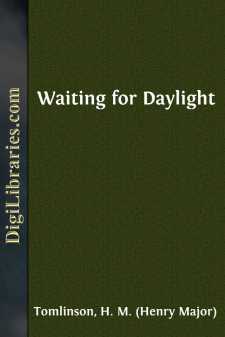Categories
- Antiques & Collectibles 13
- Architecture 36
- Art 48
- Bibles 22
- Biography & Autobiography 813
- Body, Mind & Spirit 142
- Business & Economics 28
- Children's Books 17
- Children's Fiction 14
- Computers 4
- Cooking 94
- Crafts & Hobbies 4
- Drama 346
- Education 46
- Family & Relationships 57
- Fiction 11829
- Games 19
- Gardening 17
- Health & Fitness 34
- History 1377
- House & Home 1
- Humor 147
- Juvenile Fiction 1873
- Juvenile Nonfiction 202
- Language Arts & Disciplines 88
- Law 16
- Literary Collections 686
- Literary Criticism 179
- Mathematics 13
- Medical 41
- Music 40
- Nature 179
- Non-Classifiable 1768
- Performing Arts 7
- Periodicals 1453
- Philosophy 64
- Photography 2
- Poetry 896
- Political Science 203
- Psychology 42
- Reference 154
- Religion 513
- Science 126
- Self-Help 84
- Social Science 81
- Sports & Recreation 34
- Study Aids 3
- Technology & Engineering 59
- Transportation 23
- Travel 463
- True Crime 29
Waiting for Daylight
Description:
Excerpt
I. In Ypres
JULY, 1915. My mouth does not get so dry as once it did, I notice, when walking in from Suicide Corner to the Cloth Hall. There I was this summer day, in Ypres again, in a silence like a threat, amid ruins which might have been in Central Asia, and I, the last man on earth, contemplating them. There was something bumping somewhere, but it was not in Ypres, and no notice is taken in Flanders of what does not bump near you. So I sat on the disrupted pedestal of a forgotten building and smoked, and wondered why I was in the city of Ypres, and why there was a war, and why I was a fool.
It was a lovely day, and looking up at the sky over what used to be a school dedicated to the gentle Jesus, which is just by the place where one of the seventeen-inchers has blown a forty-foot hole, I saw a little round cloud shape in the blue, and then another, and then a cluster of them; the kind of soft little cloudlets on which Renaissance cherubs rest their chubby elbows and with fat faces inclined on their hands consider mortals from cemetery monuments. Then dull concussions arrived from heaven, and right overhead I made out two German ’planes. A shell-case banged the pavé and went on to make a white scar on a wall. Some invisible things were whizzing about. One’s own shrapnel can be tactless.
There was a cellar near and I got into it, and while the intruders were overhead I smoked and gazed at the contents of the cellar—the wreckage of a bicycle, a child’s chemise, one old boot, a jam-pot, and a dead cat. Owing to an unsatisfactory smell of many things I climbed out as soon as possible and sat on the pedestal again.
A figure in khaki came straight at me across the Square, its boots sounding like the deliberate approach of Fate in solitude. It stopped and saluted, and said: “I shouldn’t stay ’ere, sir. They gen’ally begin about now. Sure to drop some ’ere.”
At that moment a mournful cry went over us, followed by a crash in Sinister Street. My way home! Some masonry fell in sympathy from the Cloth Hall.
“Better come with me till it blows over, sir. I’ve got a dug-out near.”
We turned off into a part of the city unknown to me. There were some unsettling noises, worse, no doubt, because of the echoes behind us; but it is not dignified to hurry when one looks like an officer. One ought to fill a pipe. I did so, and stopped to light it. I paused while drawing at it, checked by the splitting open of the earth in the first turning to the right and the second to the left, or thereabouts.
“That’s a big ’un, sir,” said my soldier, taking half a cigarette from behind his ear and a light from my match; we then resumed our little promenade. By an old motor ’bus having boards for windows, and War Office neuter for its colour, but bearing for memory’s sake on its brow the legend “Liverpool Street,” my soldier hurried slightly, and was then swallowed up. I was alone. While looking about for possible openings I heard his voice under the road, and then saw a dark cavity, low in a broken wall, and crawled in....



